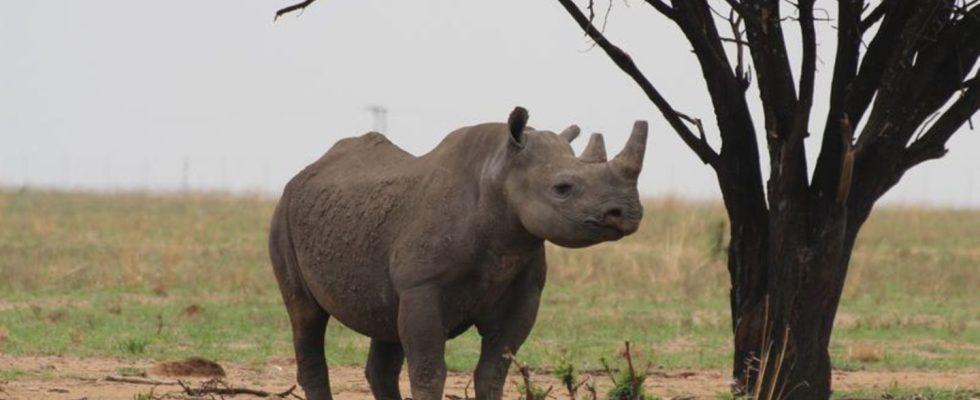South Africa
Auction of the world’s largest rhino breeding project comes to an end
A white rhino at John Hume’s private rhino sanctuary in South Africa’s North West Province. photo
© Jürgen Bätz/dpa
That’s an unusual offer: if you have the money, you can bid on a huge rhino farm with hundreds of animals in South Africa. Will the project actually change hands in the end?
The auction of the world’s largest rhino breeding project ends today in South Africa. According to owner John Hume, he owns almost 2,000 endangered white rhinos on his “Platinum Rhino” farm in the north of the country, or a good 12 percent of the estimated 16,000 white rhinos worldwide.
After the auction is over, the owner will decide whether to accept the highest bid, spokeswoman and daughter-in-law Tammy Hume said. Hume said it was still unclear when his decision would be announced. The starting price of the auction, which began on April 26, was set at $10 million.
81-year-old John Hume has been breeding white rhinos for more than 30 years. More than 1,800 rhino calves were born on his 8,500-hectare farm, which he describes as “the largest private rhino conservation project in the world.” According to the farm’s website, the project should help to increase the declining number of white rhinos on the African continent. The rhinos live permanently on the farm grounds.
Operating costs per year: almost three million euros
The spokeswoman said that John Hume is hoping for a passionate buyer who is willing to put many millions of euros into the project. “John has funded the project himself so far. Now he’s run out of money.” The annual operating costs amount to almost three million euros, and no income is generated. “The reward is what the farm does to protect rhinos,” Hume said.
According to the spokeswoman, a large part of the running costs are caused by security measures to protect the rhinos from poachers. The horn of the animals is particularly popular in China and Vietnam, where aphrodisiac and healing powers are ascribed to it. The horns are made of keratin, the same material as human fingernails.
Despite the international ban on the trade in rhino horn, at least 2,707 African rhinos fell victim to poachers from 2018 to 2021, according to the International Union for Conservation of Nature (IUCN). 90 percent of the cases were reported from South Africa, where most rhinos live.

